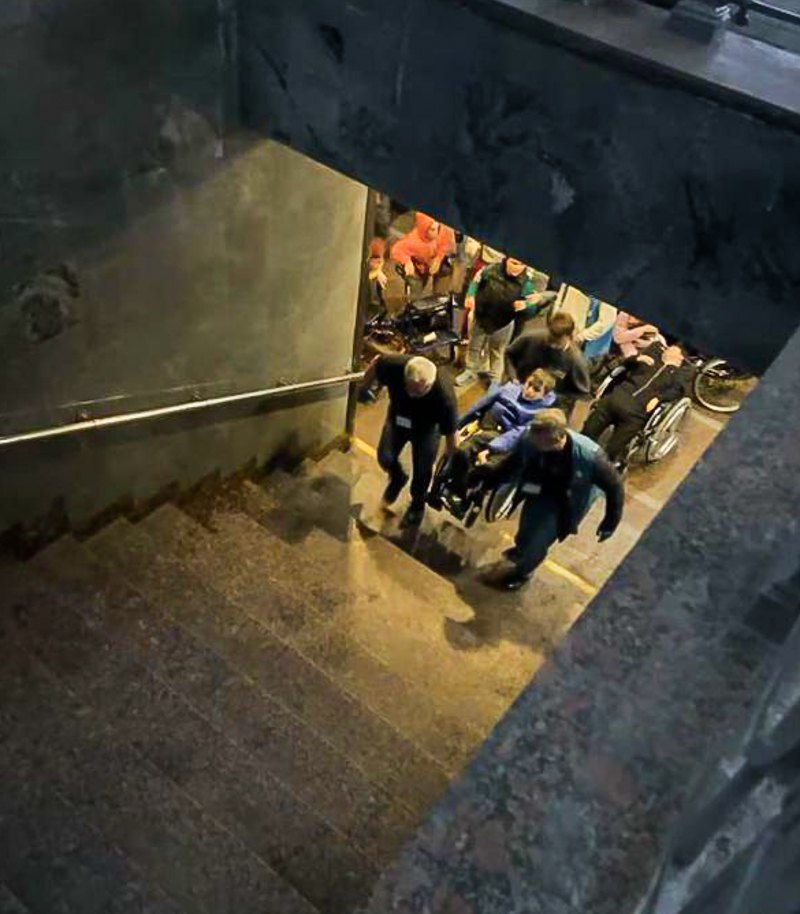
What happened
The question of the return of orphaned children from evacuation was supposed to be answered by the reform of boarding schools launched in 2017. But it turned out to be a vicious circle: its implementation fell by the wayside amid the full-scale invasion. As a result, there are still not enough places in families or family-type orphanages for everyone, and returning children to boarding schools is not the best scenario, especially in areas that get targeted by Russian missiles often, such as Dnipro.
Late on the evening of 15 May, it turned out that this scenario is already being used. Public activist Marianna Onufryk wrote that children with disabilities, who were evacuated to Poland together with a boarding school, had been brought to Ukraine. This became known when the children had already crossed the border. It seems that if not for the outcry on social media, this information could have passed the attention of the central authorities dealing with this issue.
"Is this our state policy on the return of children? And what's next? Maybe to Kramatorsk? Maybe to Lysychansk? Or maybe we will immediately transfer them to Russia? Haven't enough children died since last February, when someone forgot that evacuation should take place?" Marianna wrote.
Both the Ministry of Social Policy, the National Social Service of Ukraine (NSSU), and Darya Kasyanova, board chairman of the Ukrainian Child Rights Network, confirmed this information to LB.ua.
As of 16 May, 29 children with disabilities were in Dnipro, in an institution without shelter. Activists and journalists of LB.ua started looking for reasons why this happened and who decided to bring back the children and why.
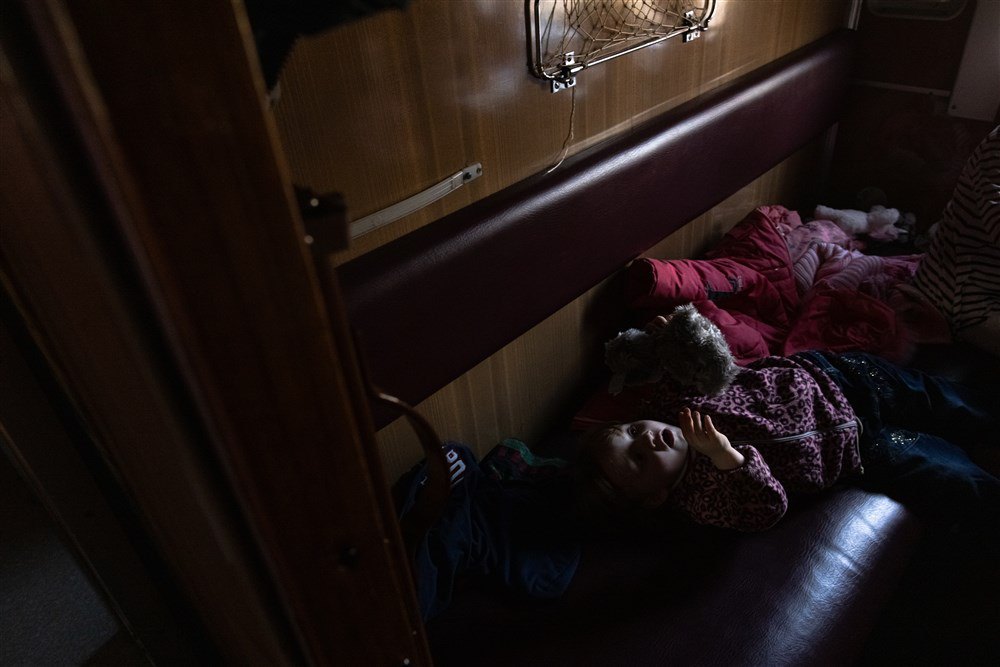
Who is responsible
In the first posts on Facebook, bloggers blamed the Dnipro regional military administration: they said they had issued an order, picked up the children and taken them to the border without explanation. Why did they decide to do this? Whose idea was it? Why did they not consult anyone? Why did they take the children to Dnipro? So many questions and so few or, more precisely, no answers for several days.
The head of the National Social Service, Vasyl Lutsyk, also confirmed the involvement of the regional military administration. He said that they did not know the motives behind the decision. From the reaction, it seemed that both the Ministry of Social Policy and the Service had learned about the children's return from the Internet the day before. Despite the fact that there is Cabinet of Ministers Resolution No. 385 of 27 March 2022, which states that children can be returned only after martial law is lifted, except in certain situations, such as adoption or admission to a Ukrainian university.
We called the regional administration. At first, Oksana Kedya, the communications adviser to the head of the regional administration, said that they knew nothing about the story of the children's return. At that time, the Facebook post tagging all the possible institutions involved had been up for over a day. According to Vasyl Lutsyk, the NSSU was already looking for safer areas to transfer these children to.
She then promised to put us in contact with those who might know something about the story. Another day passed. No specifics from the administration. Instead, our own sources provided us with a photo of a document - a permission to return addressed to the head of the orphanage and signed by the deputy head of the regional military administration, Iryna Hrytsay. So, there is proof that the regional military administration has been involved in the return of the children. There are no reasons why this was done.
Darya Kasyanova notes that the Dnipro regional state administration had not ran the relevant order with any of the above-mentioned bodies.
"Although we had raised this issue two weeks before (at the Coordination Headquarters for the Protection of Children's Rights under Martial Law - author's note), they did not coordinate this decision with the Ministry of Social Policy and the National Social Service," the public activist says.
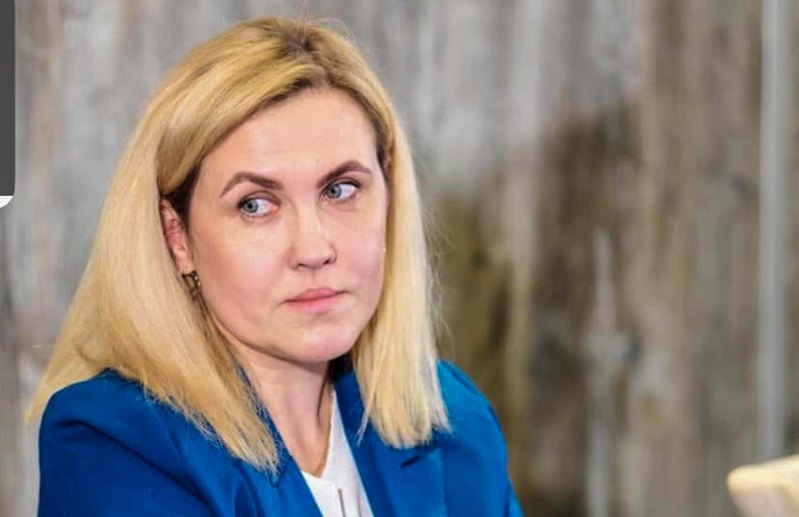
And the fact that neither the ministry nor the service knew about it seems to be unsurprising.
"The regional military administration does not need to send any additional requests. This is their institution, and, according to the Cabinet of Ministers' resolution, the decision to return the institution to Ukraine is made by the relevant military administration. They did just that. Some of the employees of the institution were with children abroad together, they received an order, gathered the children and took them to Ukraine," explains the head of the NSSU.
Dnipropetrovsk regional military administration
On 17 May, we finally managed to talk to the deputy head of the regional military administration, whose signature appears on the document.
According to Iryna Hrytsay, the administration issued the permission to bring back the children after an appeal from the management of the orphanage. The reason was that the host, namely the Laliki rehabilitation centre in Poland, had not offered the children with disabilities proper medical examinations for 14 months.
Another reason, according to Hrytsay, is the inadequate conditions for the staff of the orphanage, who stayed with the children all this time. There were seven accompanying persons with 29 children.
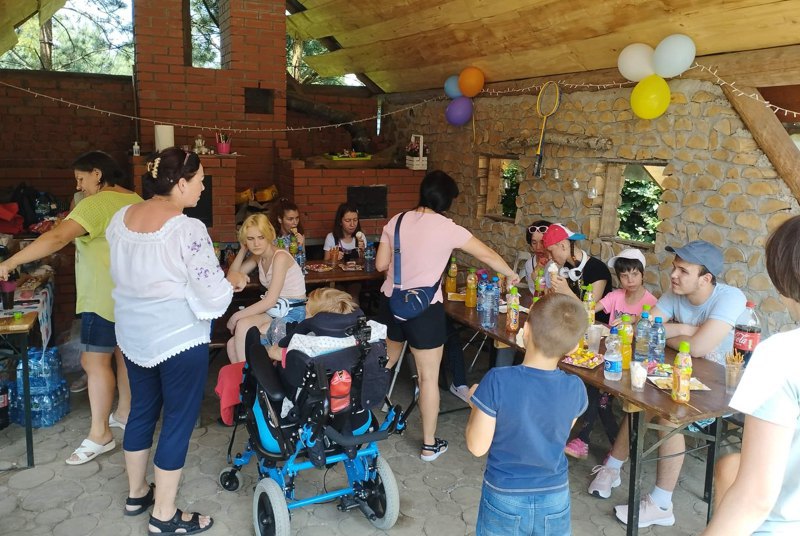
"During the children's stay and the work of the accompanying staff, it transpired that the Laliki centre did not have enough staff so the accompanying persons, in addition to their direct duties, had to clean rooms, wash clothes, dishes, and bathe children," the deputy head of the regional military administration explained.
Because of this, she said, five accompanying persons resigned voluntarily, two could not provide the necessary care, and they failed to carry out regular rotation, allegedly because the centre is located in a mountainous area, "remote from settlements and access to transport". It is difficult to say exactly what the situation is with transport connections there, but it is interesting that back in September, the director of the institution went to the centre to visit the evacuated residents - a post and photos from there were published on the Facebook page of the Dnipro orphanage.
Hrytsay says that in March they addressed this issue to the government commissioner for the rights of people with disabilities, the Ukrainian embassy in Poland, Germany, and the National Social Service, asking them to find a way to leave children abroad. Hrytsay says they received no offers, so they asked the National Social Service to agree to the children's return.
The NSSU confirmed that they had received the letter. In response, they cited the Cabinet of Ministers' resolution and said that necessary measures should be taken to keep the children in place and solve the problems.
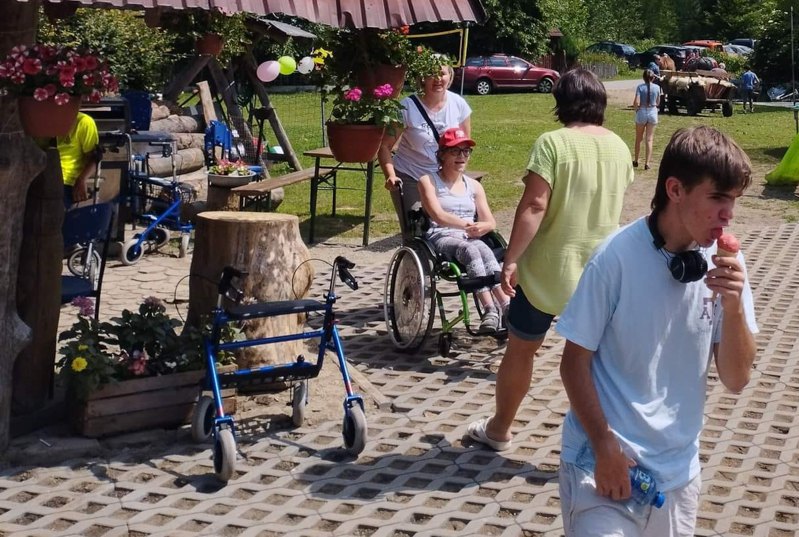
It seems that the regional military administration did not find a solution. Therefore, on 14 April, they allowed the children to return to Ukraine. To Dnipro.
At the same time, Marianna Onufryk says that the management of the orphanage did not get in touch and did not explain why they decided to return the children to Dnipro.
Among other things, Hrytsay also said that the centre which hosted the children had told them the amount of the debt – 40,000 zlotys (about UAH 350,000) – when they were leaving. According to the centre, if the Ukrainian side could support it financially, it would be good. Later, the deputy head of the regional military administration added that the children had been staying there for free.
The Polish side also allegedly said that they could keep only 10 children. However, it was decided to take all of them because they could not be separated, says Hrytsay.
LB.ua has sent a letter to the management of the Laliki centre in Poland to hear their side of the story. As soon as we receive a response, we will add it immediately.
What is being done to try to solve this issue
At first, the children were taken to the facility without shelter. It looks like after the outcry in the media, they were moved to the regional medical centre, a safer facility. The decision was taken by the Ministry of Social Policy on 16 May.
The head of the National Social Service, Vasyl Lutsyk, says that they are urgently looking for places for these children in Ukraine. But given that these are children with disabilities, the search may take some time.
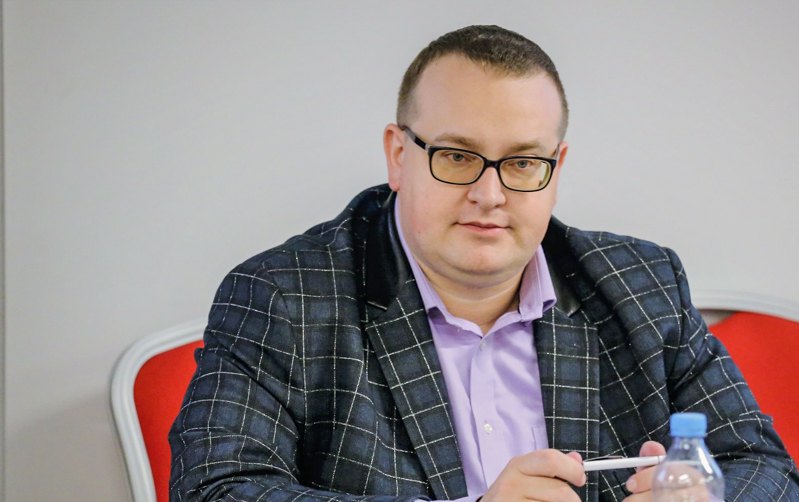
Another factor is bureaucracy at the regional military administration.
"To transfer these children to other institutions, we will also need to request a decision on their transfer from the regional military administration. We will try to influence this process so that it goes as quickly as possible," Lutsyk explains.
The regional military administration says that 11 children are currently being examined. A request was filed with the Foreign Ministry on 17 May to re-evacuate the children abroad. Documents are being prepared for those patients who are already adults.
The National Social Service has not yet identified any similar cases of unauthorised return of children from abroad in other regions. At least no such blatant ones. However, public activist Marianna Onufryk, who wrote about the return of these children, says that she was later informed of cases in boarding schools in other regions - Rivne, Khmelnytskyy, Zaporizhzhya, and Mykolayiv. While the first two regions are still relatively safe, it is questionable what the leaders of the latter two were guided by.
This case was also considered on 19 May at a meeting of the Coordination Headquarters for the Protection of Children's Rights under Martial Law chaired by Deputy Prime Minister Iryna Vereshchuk. According to Darya Kasyanova, it was decided not to return the children without the approval of the National Social Service until the war ends. Only if there are safe places and an opportunity to place a child in a family.
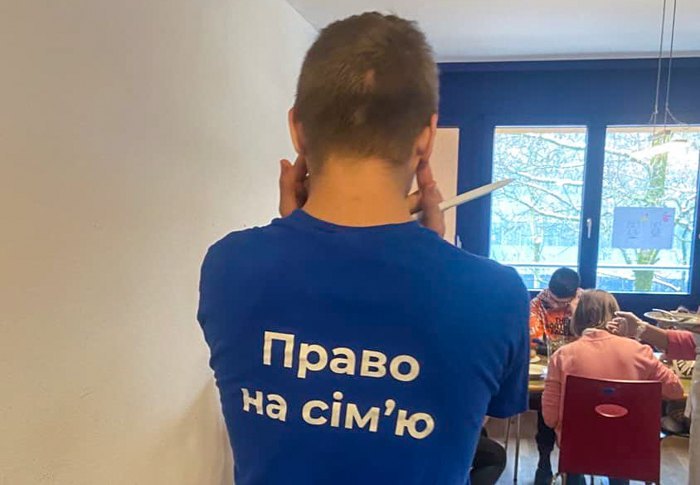
"This is a matter of safety for these children. They were evacuated [abroad] with such difficulty and in a year they have not found a solution to avoid returning the children to danger and to the boarding school," Kasyanova adds.
Meanwhile, Vasyl Lutsyk said that it was proposed to amend the Cabinet of Ministers' resolution to return children from evacuation only with the permission of the National Social Service.
Marianna Onufryk believes that the motivation of the heads of boarding schools to return children to the institution is understandable, because while children are not in the institution, the budget does not provide funding for the institution. And this sometimes amounts to several million hryvnyas a year. So children are used as a resource, she says, because if there are no children, there is no money.
At the same time, the case of the children from Dnipro reveals another problem: sometimes addressing the safety of children in boarding schools is similar to shifting responsibility. There is not even coordinated communication between them. This will continue until the reform is implemented and a responsible agency is established.
And if there are indeed problems abroad with the upkeep, financing or return of Ukrainian children, how they will be resolved promptly is also a big question.








